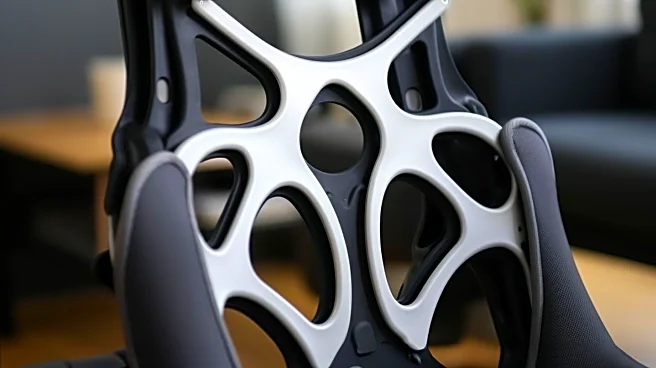What is the story about?
What's Happening?
A lumbar support pillow has been highlighted as a potential solution for individuals experiencing back pain due to prolonged sitting in home office setups. The pillow is designed to maintain proper spine alignment and improve posture, which can alleviate discomfort in the lower back. Made from compressed foam, it conforms to the user's back contours and is available in different densities to cater to varying support needs. The product has received positive reviews from users who have noted significant improvements in their comfort and posture after using the pillow. It is also praised for its versatility, as it can be easily attached to various types of chairs and is portable enough to be used in cars during long drives.
Why It's Important?
The rise in remote work has led to an increase in health issues related to prolonged sitting, such as back pain and poor posture. Products like lumbar support pillows are becoming essential for home office workers seeking ergonomic solutions to improve their work environment and overall health. By addressing these common issues, such products can enhance productivity and reduce the risk of long-term musculoskeletal problems. The positive reception of this pillow suggests a growing demand for ergonomic accessories that can transform existing furniture into more supportive setups, potentially influencing the market for home office equipment.
What's Next?
As remote work continues to be a prevalent mode of employment, the demand for ergonomic solutions is likely to grow. Companies may invest more in developing innovative products that cater to the needs of home office workers. Additionally, there could be an increase in awareness and education about the importance of ergonomics in preventing work-related health issues. This trend might lead to more research and development in the field, as well as collaborations between health professionals and product designers to create effective solutions.
Beyond the Headlines
The focus on ergonomic products highlights a broader cultural shift towards prioritizing health and wellness in the workplace, even when that workplace is at home. This shift may encourage employers to offer subsidies or discounts on ergonomic products to support their remote employees' health. Furthermore, it could lead to changes in home office design standards, emphasizing the importance of creating spaces that promote physical well-being.















